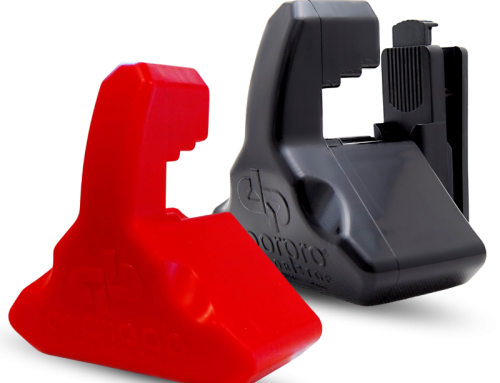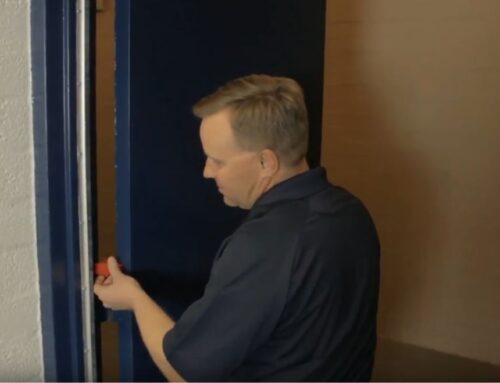
Bariza Laib was a case manager for the State Insurance Fund. Laib says she injured her right shoulder and elbow by repeatedly closing and pulling open the heavy front door of a building in which she worked for five years. The door is made of thick metal and glass with a tight spring that was particularly difficult to open and close on windy days. She complained to security guards in the building lobby about the problem.
Laib says she had to use the door four to six times a day. After she started having problems with her shoulder, she asked her supervisor if she could use the handicapped-accessible door and gave him a note from her doctor supporting the request.
Later, Laib found out she needed to have surgery on her shoulder. A medical report indicated a “causal relationship” between her injuries and her work. Laib applied for workers’ comp benefits which were denied by her employer.
An independent medical exam confirmed the diagnosis of the right shoulder injury and that surgery was a reasonable request.
A workers’ comp law judge issued a decision that Laib had sustained an injury in the course of her employment as a result of repetitive trauma and awarded her benefits. The Workers’ Compensation Board affirmed the judge’s ruling. Her employer appealed.
Workplace injuries are often thought of as something that results from a sudden event like a fall or being struck by something.
Of course, there’s another type: repetitive stress injuries (RSIs). Specific risk factors that can cause RSIs include repetitive motion, force, awkward posture, heavy lifting or a combination of these factors.
Ergonomics, the science of adjusting the job to fit the body’s needs, can prevent RSIs. Ergonomic solutions need not be expensive or complicated. Simple and inexpensive remedies will eliminate a significant portion of the problem.
While this case involving the heavy door isn’t exactly typical, it does contain a useful reminder. When employees complain that equipment is causing them to have to strain to perform their jobs, it’s a good idea to investigate whether a risk factor exists. Who knows how this case could have ended if the guards had passed along the complaint about the door to the Facilities department. After all, the best way to avoid workers’ comp costs is to prevent injuries in the first place.2
When you need to keep the door open—particularly when you are in a profession that requires you to hold a heavy door open several times a day—you need a solution that is easy and effective. For questions on how DoorPRO Doorstop works, contact: info@doorprodoorstop.com.
References:
-
Laib v. State Insurance Fund, NY Supreme Court Appellate Division, No. 513738, 12/13/12
-
Fred Hosier- Workers’ comp: Injured shoulder by opening a door?






